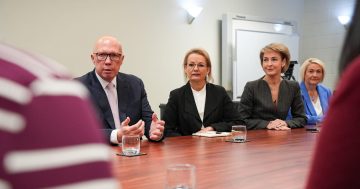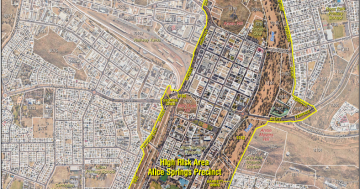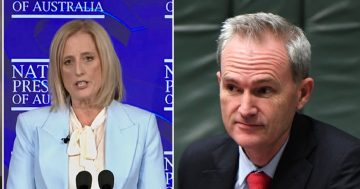 1. This week 10 years ago, the ACT Government took the first steps towards establishing the Territory’s own Industrial Court to hear and decide all workers compensation matters and all industrial civil claims up to $250,000 currently before the Magistrates Court.
1. This week 10 years ago, the ACT Government took the first steps towards establishing the Territory’s own Industrial Court to hear and decide all workers compensation matters and all industrial civil claims up to $250,000 currently before the Magistrates Court.
ACT Attorney-General, Simon Corbell said the Court would also be given wider jurisdiction to deal with industrial civil compensation claims over $250,000, which could at present only be dealt with by the Supreme Court.
“Ensuring workers in the ACT get home safely is one of this Government’s highest priorities so we are working to strengthen the capacity of the court system to focus on industrial and workplace health and safety issues,” Mr Corbell said.
2. New legislation was introduced into the NSW Parliament to help modernise the State’s complex and inconsistent bail laws, with Attorney-General, Greg Smith SC saying the new Bail Act included “unacceptable risk” as the primary decision-making tool when police bail sergeants or courts determined whether an alleged offender should be granted bail, or on what conditions.
“This legislation will put the safety of the community, victims and witnesses first, rather than focusing on the alleged offence according to a complex system of presumptions,” Mr Smith said.
3. Victorian Treasurer, Michael O’Brien announced reforms that would see all property owners contribute to the cost of fire services. Under the previous system, property owners who chose not to insure, underinsured or self-insured made no (or a smaller) contribution to funding the State’s fire services — something the Victorian Bushfires Royal Commission labelled “highly flawed”, “unfair” and in need of reform.
Mr O’Brien said the new Fire Services Property Levy would replace the old insurance-based levy.
“It is fair that all property owners, not just those who adequately insure, should make a contribution towards keeping our fire services going,” Mr O’Brien said.
4. The Queensland Parliament passed new unexplained wealth laws to strip criminals of their assets under what Attorney-General, Jarrod Bleijie said would be the toughest laws in the nation for dealing with organised crime.
Mr Bleijie said the new laws were aimed at hitting the “Mr Bigs” of the crime world who may not be directly involved but still benefited financially from criminal activity, and would send a clear message that the Queensland Government would not tolerate the State being used by organised crime gangs as a safe haven for their proceeds of crime.
Mr Bleijie said drug traffickers would also be forced to forfeit all their property to the State, including gifts they had given to others in the six years before an offence.
5. Geodynamics Limited successfully commissioned and started trials of Australia’s first enhanced geothermal systems (EGS) power plant in South Australia.
Minister for Mineral Resources and Energy, Tom Koutsantonis said the company’s achievement highlighted South Australia’s reputation as the nation’s leader in pursuing geothermal or ‘‘hot rocks’’ energy production and was a globally significant demonstration of EGS capability.
He said Geodynamics believed EGS could generate baseload power at a competitive price.
“This energy source offers the prospect of zero carbon emissions and is a true baseload renewable energy,” Mr Koutsantonis said.
6. And a decade ago, nearly 40 million West Australian honeybees were exported to Canada to assist its beekeepers in what Director of Plant Biosecurity at the WA Department of Agriculture and Food, John van Schagen said was a great endorsement of the State’s bee biosecurity program.
Mr van Schagen said Canadian honeybees were often kept indoors through harsh winter weather and some did not survive; the WA bees would help replace casualties and kickstart their pollination and honey-gathering activities.
“The health of our bee industry and its freedom from important exotic diseases including European foulbrood, small hive beetle and varroa mite is a major factor in the Canadians choosing WA to supply bees,” Mr van Schagen said.











